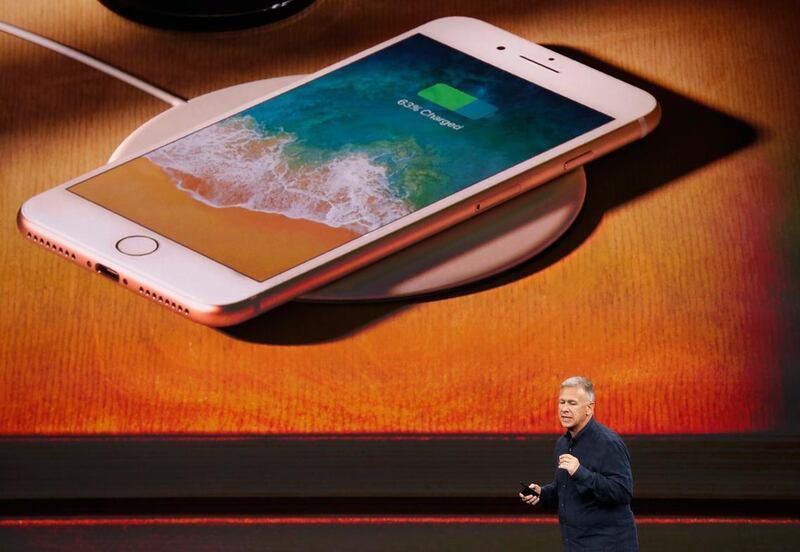For 19 nonstop hours as Hurricane Irma lashed Florida, disc jockey Nio Fernandez broadcast updates in Spanish from the 92.5 Maxima radio studios in St Petersburg, fielding updates from those trapped in their homes as wind and rain whipped through the area.
"There was a sense of desperation in people’s voices," he said of callers to the station. "They needed to know what was happening."
Fernandez’s efforts made it possible for listeners who had lost power, cell or internet service - as many in the region had - to keep up with the storm’s progress using FM radio chips embedded in their smartphones.
But not iPhone users. Though the phone includes the FM chip, Apple has chosen not to activate the feature, a move critics say could be putting lives in danger.
The issue has drawn fresh scrutiny following hurricanes that devastated Puerto Rico, and parts of Texas and Florida. On Thursday, FCC Chairman Ajit Pai called on Apple to activate the chips in the name of public safety.
____________
Read more:
Irma is gone at last, after reducing Caribbean islands and the Florida Keys to a disaster zone
iPhone 8 Plus: Apple's best smartphone, which you probably shouldn't buy
____________
"I hope the company will reconsider its position, given the devastation wrought by Hurricanes Harvey, Irma, and Maria," Pai said in a statement. "That’s why I am asking Apple to activate the FM chips that are in its iPhones. It is time for Apple to step up to the plate and put the safety of the American people first."
In Congress, Senator Bill Nelson of Florida is leading calls for mobile phone manufacturers to activate the FM radio chips embedded in nearly all smartphones. Those exhortations have been mainly directed at Apple, whose iPhone accounts for more than 40 per cent of the US smartphone market.
"Broadcasters are providing information on how to evacuate quickly, where flood waters are raging, how to get out of harm’s way if there’s a tornado or a hurricane," said Dennis Wharton, a spokesman for the National Association of Broadcasters. "The notion that Apple or anyone else would block this type of information is something that we find fairly troubling."
The group, which represents radio-station owners, has been lobbying the industry for several years to allow phone users access to the FM radio feature. Now, many of the major manufacturers - including Samsung Electronics, LG Electronics and Motorola Solutions - allow the use of the chip. Apple is the only major holdout, according to Wharton.
Critics say Apple doesn’t want to cannibalise its streaming service by giving iPhone owners access to free radio service over the airwaves. An Apple spokeswoman said the company wouldn’t comment on the matter.
While surveying the damage caused by Hurricane Irma, Nelson told WBBH-TV in Fort Myers, "There’s got to be a way we can activate the chip." A spokesman for the senator said he was considering writing phone manufacturers on the issue but hasn’t called for a mandate.
“The bottom line is consumers need critical information in times of emergency,” Nelson said. "If technologies, such as radio chips, exist that will help do that during times of emergencies then companies should be doing everything in their power to employ their use.”





